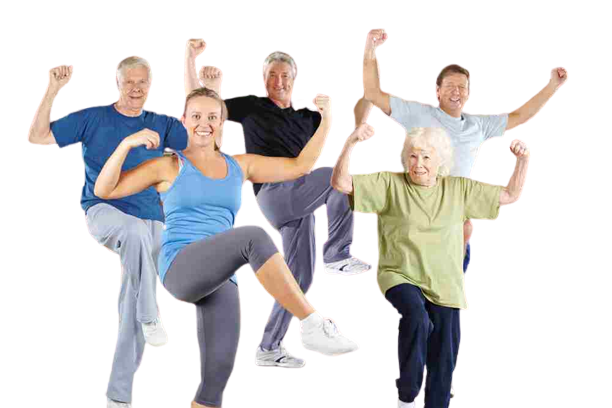New research conducted by scientists at the University of Birmingham highlights an additional benefit of aerobic exercise. In addition to its well-known advantages of strengthening the heart and lungs, lowering cholesterol, reducing the risk of type 2 diabetes, improving immune function, and lowering blood pressure, regular aerobic fitness has been found to have a positive impact on language skills, particularly in healthy older individuals.
The study, carried out in collaboration with the University of Agder in Norway, the University of Leuven in Belgium, and King’s College London, focused on investigating the occurrence of “tip-of-the-tongue” states, which are age-related language failures. The researchers wanted to determine whether aerobic exercise could influence these linguistic difficulties.
A group of 28 healthy older adults (comprising 20 women with an average age of 70 and 8 men with an average age of 67) participated in a language test that involved a “definition filling task.” They were asked to name well-known figures in the UK based on provided questions, as well as to identify the correct words corresponding to given definitions.
The results were compared to those of a control group consisting of 27 young adults (19 women with an average age of 23 and 8 men with an average age of 22). The findings revealed that older adults with higher levels of aerobic fitness were less likely to experience tip-of-the-tongue states, indicating a correlation between aerobic fitness and language skills.
Dr. Katrien Segaert, the lead author from the University of Birmingham’s School of Psychology, explained, “Even healthy older adults experience some decline in cognitive abilities associated with aging. Our study demonstrated that the degree of decline is related to aerobic fitness levels.”
She further emphasized, “Interestingly, the relationship between the frequency of tip-of-the-tongue occurrences and aerobic fitness levels remained significant even after accounting for age and vocabulary size.”
It is important to note that tip-of-the-tongue states should not be confused with memory issues or dementia. Older adults, in fact, often possess a larger vocabulary than their younger counterparts. These linguistic difficulties arise when the meaning of a word is known but its specific sound cannot be readily retrieved.
Dr. Segaert stressed the significance of these findings, stating, “Accessing the sound forms of words is essential for fluent language production, and disruption in this process has noticeable negative consequences for older adults. Our research adds to the growing body of evidence that underscores the importance of regular aerobic exercise for healthy aging.”
She concluded, “Maintaining strong language skills is crucial for older adults, as word-finding difficulties can be frustrating and embarrassing. Effective communication supports social relationships and independence as we age.”
The research study, which sheds light on the connection between aerobic fitness and language abilities, was published in the journal Scientific Reports.








Leave a Comment